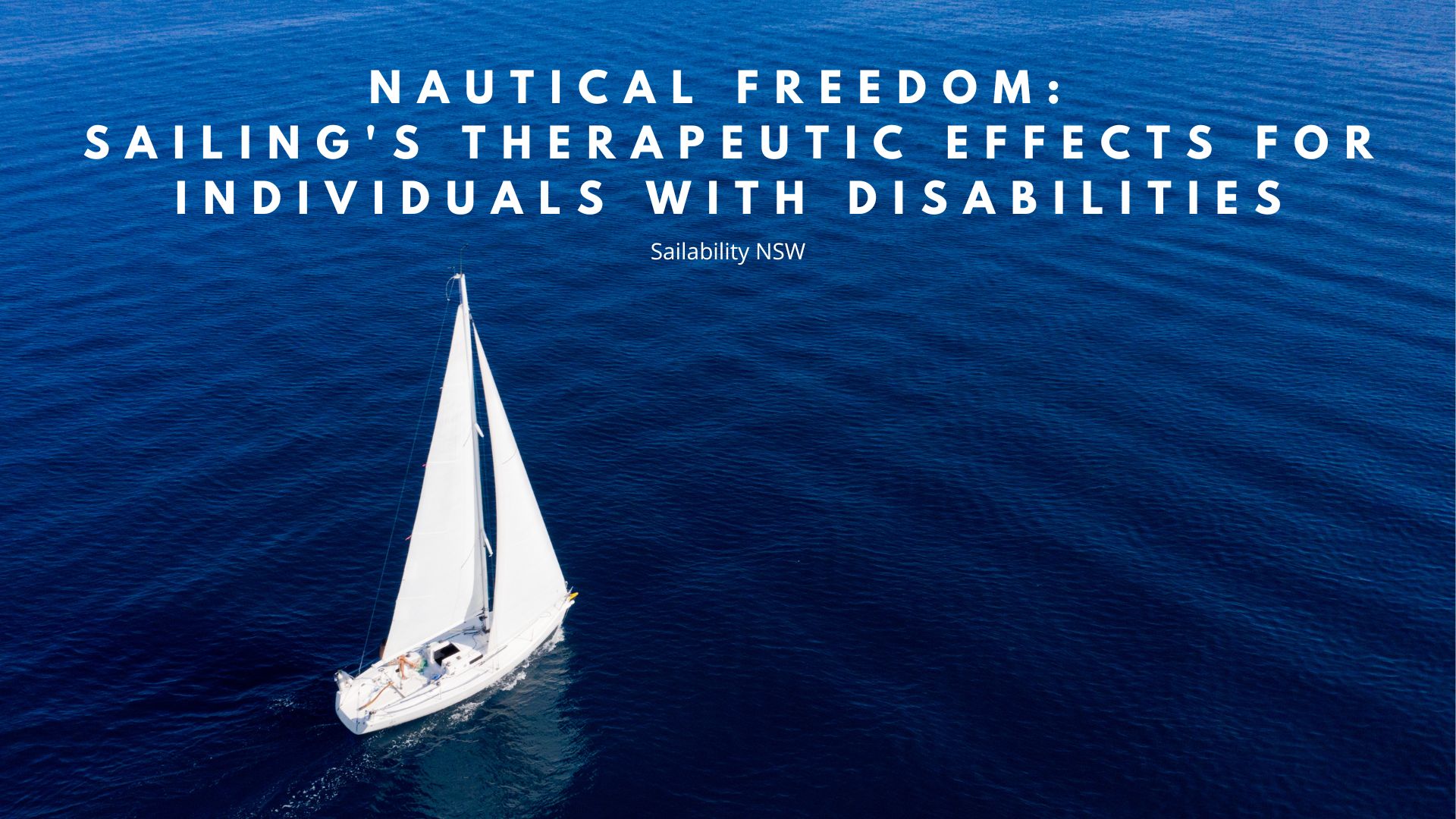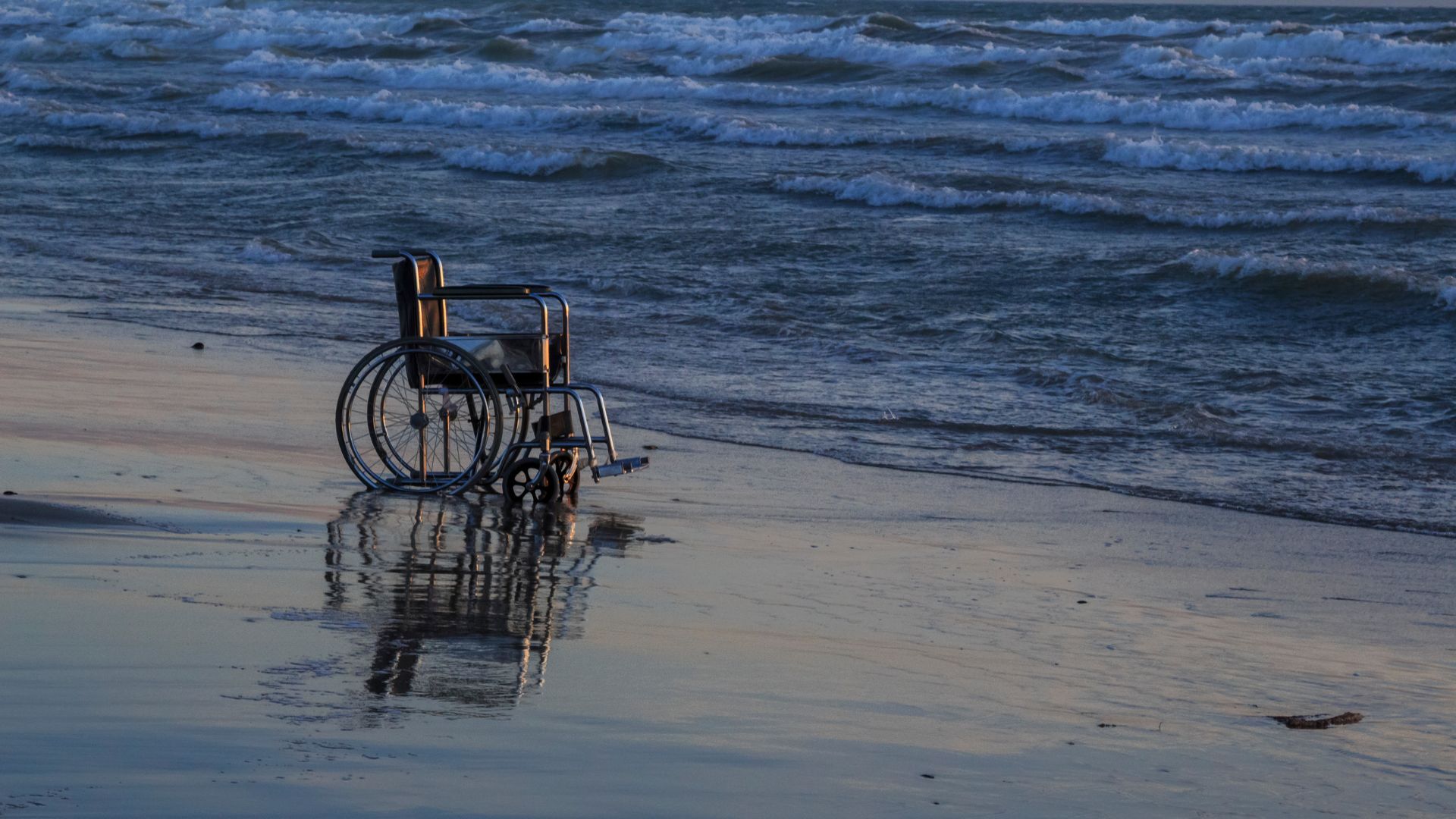Nautical Freedom: Sailing’s Therapeutic Effects for Individuals with Disabilities
When it comes to the therapeutic power of open sea sailing, one might think of relaxation, adventure, and a sense of freedom. But sailing offers much more than just a pleasurable escape. It has proven to be an incredibly transformative experience for individuals with disabilities, offering a unique form of therapy that goes far beyond the traditional treatment approaches.

In this post, we will dive into the world of adaptive sailing and explore the nautical freedom it brings, along with its remarkable therapeutic effects for individuals with disabilities.
Setting Sail towards Empowerment
Sailing, with its invigorating winds and rhythmic waves, has an uncanny ability to empower individuals with disabilities. It goes beyond the physical act of sailing and taps into the realms of self-confidence, independence, and personal growth. When individuals with disabilities step onto a sailboat, they enter a world where their limitations melt away, and their abilities take center stage.
Sailing encourages a sense of empowerment by breaking down barriers and challenging perceived limitations. As individuals maneuver the boat, hoist sails, and navigate the water, they gain a profound sense of control and mastery over their own movements.
This newfound sense of agency can have a ripple effect, transcending the sailing experience and positively influencing other aspects of their lives. The therapeutic benefits extend far beyond the time spent on the water, empowering individuals with disabilities to embrace their strengths, push boundaries, and navigate life’s challenges with a renewed sense of determination.
Winds of Connection: Social Support on the High Seas
One of the remarkable aspects of adaptive sailing has significant improvement for individuals with disabilities to connect with others who share similar experiences. Sailing programs and communities provide a supportive environment where participants can bond, share stories, and build lasting friendships. The shared passion for sailing creates a sense of camaraderie and understanding, fostering a support system that extends well beyond the confines of the boat.
Sailing serves as a catalyst for social interaction, breaking down barriers and bridging the gap between individuals with disabilities and the wider community. The sailing community embraces diversity and inclusion, celebrating the unique abilities and perspectives that each individual brings. It offers a space where individuals can be seen for who they are, rather than defined by their disabilities.
This sense of belonging and social connection is invaluable, as it combats feelings of isolation and creates a network of support that extends far beyond the shores. Whether it’s sharing sailing techniques, swapping stories of triumph and challenges, or simply enjoying the camaraderie of like-minded individuals, the social benefits of adaptive sailing are a crucial component of its therapeutic power.
The Sea as a Therapist: Mental and Emotional Well-being
Sailing has a way of soothing the soul and providing a respite from the stresses of everyday life. For individuals with disabilities, the therapeutic benefits extend to their mental and emotional well-being. The tranquil rhythm of the waves, the vastness of the sea, and the sense of being at one with nature can have a profound impact on mental health.

The act of sailing allows individuals to escape the confines of their daily routines, immersing themselves in an environment that fosters relaxation, mindfulness, and a sense of peace. Also, recognizing that people with disabilities tend to be accustomed to the obstacles of land, they find independence on the ocean to be a liberating sensation.
The connection to nature, combined with the physical activity of sailing, releases endorphins and boosts overall mood. Sailing also offers a break from the often-demanding responsibilities of living with a disability, providing a space where individuals can let go of worries and experience a sense of liberation.
Moreover, the challenges and triumphs of sailing can instill a sense of resilience and emotional strength. Overcoming obstacles, navigating unpredictable conditions, and working together as a team foster a sense of accomplishment and build confidence. Sailing becomes a metaphor for life, reminding individuals that they have the resilience and determination to navigate any storm that comes their way. The therapeutic effects of sailing extend far beyond the physical realm, nurturing mental and emotional well-being and providing a unique avenue for self-care.
Sailing into Physical Wellness: Strength, Balance, and Rehabilitation
According to a study, adapted sailing provides substantial benefits for individuals with disabilities. Sailing engages the entire body, requiring strength, balance, coordination, and flexibility. The constant adjustments and movements required to sail effectively work muscles, improve cardiovascular health, and enhance overall physical fitness.
For individuals with physical disabilities, sailing serves as a form of therapeutic exercise and rehabilitation. It offers an opportunity to engage in physical activity in a supportive and enjoyable environment, making it easier to stay motivated and committed to fitness goals. The unique nature of sailing challenges individuals to use their bodies in new ways, promoting improved muscle tone, enhanced range of motion, and increased overall strength.
In addition, the nature of sailing, with its constant motion and adjustments to balance, provides an excellent platform for improving core stability and coordination. As individuals adapt to the ever-changing conditions of the sea, they develop a heightened sense of body awareness and control. These physical improvements not only contribute to overall wellness but also have practical applications in daily life, making activities of daily living more manageable and promoting independence.
Sailing Beyond Disabilities: Empowering Change and Advocacy
The transformative power of sailing for individuals with disabilities extends far beyond the personal realm. It becomes a catalyst for change, advocacy, and raising awareness about the capabilities and potential of individuals with disabilities.
Adaptive sailing programs demonstrate that disabilities need not be barriers to participation in adventurous and fulfilling activities. By showcasing the abilities and accomplishments of individuals with disabilities, the sailing community challenges societal misconceptions and promotes inclusivity.
The impact of adaptive sailing extends to the broader disability community, inspiring individuals to embrace new experiences, explore their capabilities, and challenge perceived limitations. Sailing programs provide a platform for individuals with disabilities to share their stories and advocate for equal access and opportunities in all aspects of life. They highlight the importance of adaptive sports and recreation, paving the way for increased support and resources for individuals with disabilities.
Conclusion
Sailing, with its therapeutic effects, empowers individuals with disabilities, fosters social connection, promotes mental and emotional well-being, enhances physical fitness, and serves as a catalyst for change and advocacy. Adaptive sailing programs offer a unique avenue for individuals to embrace the nautical freedom that the open seas provide, transcending limitations and embracing new horizons.
So, whether it’s the wind in the sails, the rhythmic waves, or the sense of camaraderie, sailing has the power to transform lives and create a world where disabilities are no longer barriers to exploration, adventure, and the pursuit of freedom.